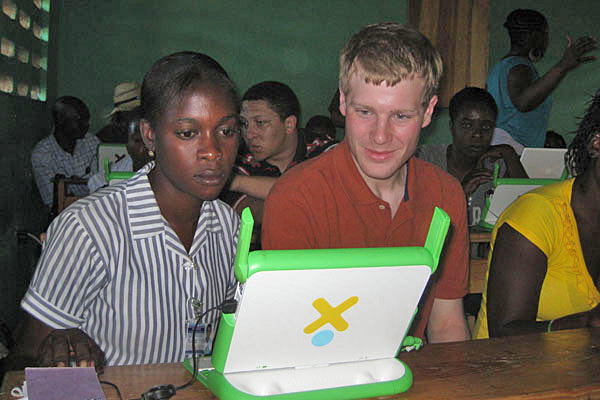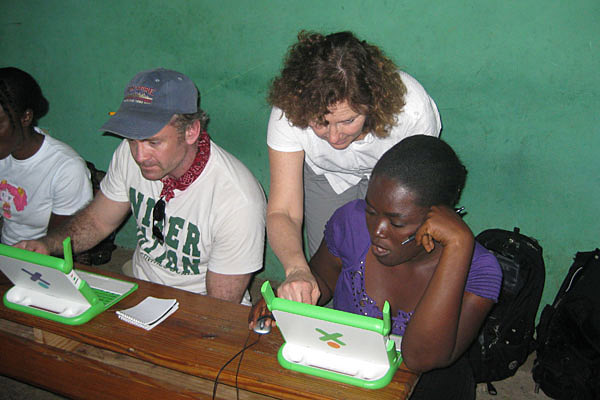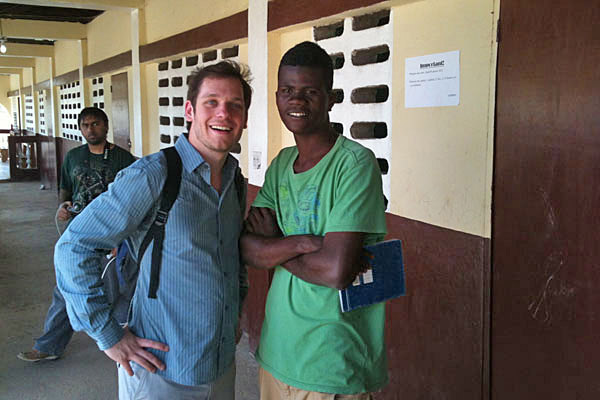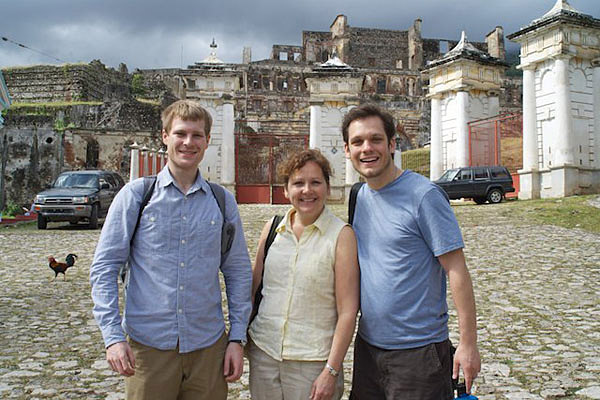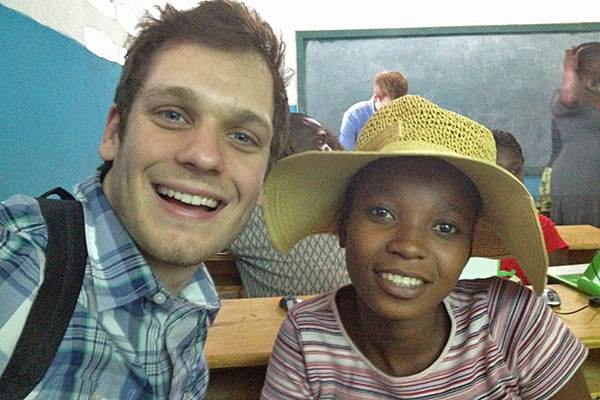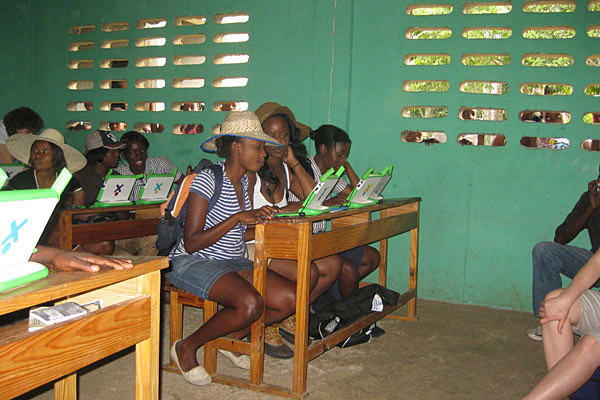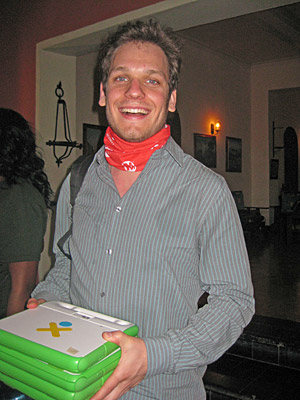Helping Haiti
UD senior creates English to Creole translator for XO laptops
8:33 a.m., March 23, 2012--Eric McGinnis doesn’t like to play games; rather, he likes to create them. During the fall of his junior year at the University of Delaware, McGinnis took a course called CISC 374, Educational Games Development.
Through the course he had the opportunity to create learning games for children that could be deployed on XO laptops, small green and white laptop computers developed by the nonprofit organization One Laptop per Child, which aims to create educational opportunities for the world’s poorest children. The laptops were loaded with games created by UD students, including Math Adder, an application that teaches math concepts through game play.
Global Stories
Fulbright awards
Peace Corps plans
Earlier this month while on a service trip to Haiti, McGinnis developed an English to Creole tutor application to help Haitian women send emails and communicate in English, in collaboration with UD Prof. Lori Pollock and Richard Burns, a graduate research assistant.
The trip, March 7-12, was part of an effort to foster learning among women and children in remote areas of Haiti coordinated between UD’s Department of Computer and Information Sciences and the University of North Carolina Charlotte, along with two nonprofit organizations: Waveplace Foundation and Mothering Across Continents (MAC).
“The girls seemed to really like the Creole application on my iPhone, and I was definitely seeing improvement in their pronunciations and vocabulary even in the limited amount of time that they used it,” McGinnis said.
Working with undergraduates from UNC Charlotte, McGinnis used Scratch, simple software that allows young learners to develop their own programs, to create the tutor application for XO laptops.
The translation software is similar to a tutor and features figures with the faces of mentors and team members “speaking” nearly 80 different English words and phrases. Students respond in Creole and click the application to both see and hear the correct answer in English. The visual component of the games also allowed the team to overcome the language barrier, since easy to understand symbols took the place of words.
“Education changes the world,” Burns said. “It fosters the attitude that you can always keep learning and instills the self-confidence to teach yourself anything. Importantly, it contributes to the mentality that anyone can make a difference.”
Mentoring new teachers
To create a sustainable program, the team trained young women as mentors, teaching them how to instill learning habits and continue educating the children after the team’s departure. These women will work with the children on the XO laptops after school.
Through programs like Scratch, a vehicle for computational thinking, Pollock believes that valuable lessons, such as the importance of healthy living and sanitation, could be expressed to the community through animations developed by the Haitian students. The students stimulate their minds while using the XO laptops, regardless of what actions they are performing while engaged.
According to Pollock, it’s important to remember that children in Haiti have few toys, limiting their opportunities to think and learn through play. The laptops allow mentors and students to think interactively through the games they play and the programs they use.
“We can make a difference for both mentors and students by showing them how to problem solve,” noted Pollock. “This will lead to brainstorming and recognizing problems in the community, which could result in a change in behavior over time.”
Pollock said she hopes to collaborate on research on the effect of learning games and the mentor-mentee model for teaching computational thinking.
For McGinnis, a computer sciences major and Honors Program student, the trip was an eye opening experience illustrating the monumental impact service trips like this can have on the global community.
Article by Janie Sikes






